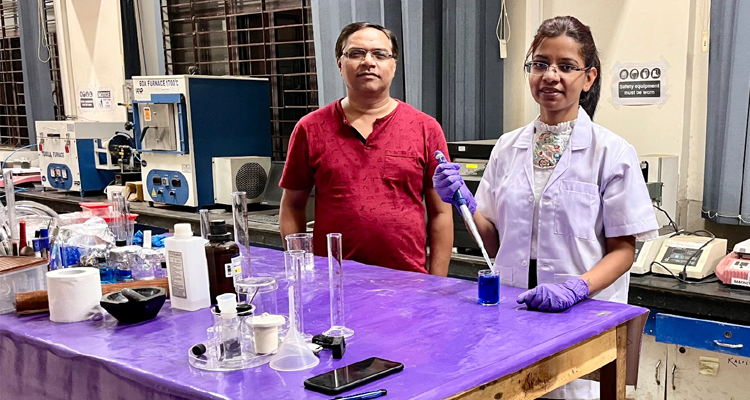# Newly developed water-repellent jute is cost-effective and has greater durability
JNS: Researchers of IIT-ISM, Dhanbad, have developed water-repellent but biodegradable jute that has a low carbon footprint compared to plastic sacks or bags, used in the packaging of food grains and others.
The two-member team, led by Dr Aditya Kumar, Associate Professor of the Department of Chemical Engineering and Dr Poonam Chauhan, a research scholar of the same department who completed the research in 2.5 years and later also filed the patent application for the same in November last year used a silane-based coating to make the jute water repellent, informed Rajni Singh, Dean, Media & Branding of ISM.
Explaining the process for the development of water-repellent jute, Professor Aditya Kumar said, “We used inexpensive materials to develop the new jute and coating was done chemically via the spread method under ambient conditions without using any sophisticated instrument”.
“The coating is environment friendly and bio-degradable, reducing the chance of any negative impact on the environment of human health” clarified Professor Kumar.
“The coated jute is mechanically durable, and moreover the coating didn’t affect the weight or thickness of the Jute,” he said.
Elaborating on the advantages of water-repellent jute over the traditional one, Professor Kumar said, “The water-repellent jute shows self-cleaning properties that could help to improve the stains and dust contamination issues”.
“The bags prepared from the jute can be used to protect the grains from moisture in a highly humid environment,” said Kumar adding, “expected that the water-repellent jute may find extended application such as geotextile where moisture or water problem arises.”
Regarding the cost-effectiveness of Jute, Professor Aditya said, “It is cost-effective as the coating material costs around Rs 70 per liter.
“The newly developed jute can be used by manufacturers, industry owners and customers due to its added properties and also due to the simple method of its preparation without the involvement of any extra time,” said Kumar.
“Though the newly developed jute has only been prepared on a lab scale we may see commercialization later on once the idea is patented,” he said.
Kumar is also the principal investigator of the project that began on 12 February, 2020.




